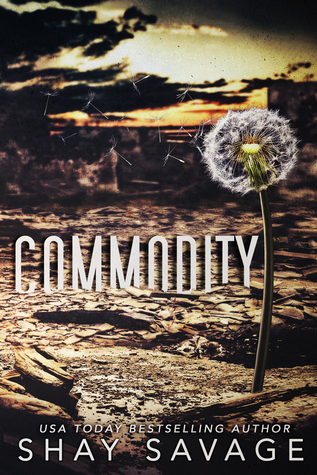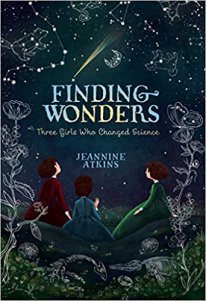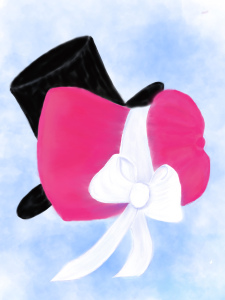
Mickey, by Chelsea Martin. Chicago, Illinois: Curbside Splendor Publishing, July 2016. 200 pages. $7.95, paper.
The epigraph for Chelsea Martin’s novella Mickey is a lyric from the song “3 AM” by Matchbox 20: “It’s all gonna end and it might as well be my fault.” It’s an appropriate introduction because pages later, the narrator breaks up with her boyfriend, the titular Mickey. Yet this VH1’s 100 Greatest Songs of the ‘90s fodder isn’t just played for laughs. The band’s singer, Rob Thomas, is not only significant in the narrator’s relationship with Mickey, but with her mother, too. In fact, in describing her mother’s love of the alt-rocker, the narrator describes herself, noting that her mother would act “as if she were trying to be funny while implying a sort of sarcasm regarding her feelings.” Mickey’s narrator, like her mother, uses sarcasm to respond to many of her problems, going as far as drawing a portrait of Rob Thomas, with an idea for a title being: “THIS PORTRAIT OF ROB THOMAS IS HOW I’VE CHOSEN TO DEAL WITH THE VERY REAL PAIN I’M FEELING.” It’s this sarcasm, and these relationships—with family, friends, and ex-boyfriends—that drive Mickey’s breakups, one-night stands, and YouTube binges, as well as the coming-of-age story at its heart.
Mickey is written as a series of vignettes, and although it’s two hundred pages, it’s billed as a novella, with a prose style reminiscent of Martin’s previous book, the poetry collection Even Though I Don’t Miss You, with double-spacing between short, single-spaced paragraphs. The novella follows the narrator through breaking up with Mickey, losing her job, struggling as an artist, and trying to reconnect with her mother, but occasionally, there is only a paragraph or a sentence or two on a page. It’s in these vignettes that Martin plays with form, with her narrator “reviewing” her recent breakup (“A+++. He handled my rejection very maturely, would unfairly reject him again.”) and having a back and forth with “the abyss” about using food stamps to buy Hot Cheetos. The narrator also has an idea for “an art show that is made up of big black words displayed on the white walls of a gallery,” and throughout Mickey, the narrator includes the pithy, tweet-sized pieces, all untitled, “an homage to all the unnamed, misunderstood feelings that exist in the world,” presented in all-caps, with a few examples here:
Untitled #1
THIS IS NOT A METAPHOR FOR ANYTHING. PLEASE APPROACH THE ARTIST. SHE’S VERY LONELY.
Untitled #2
I’M TERRIFIED THAT DEEP DOWN INSIDE I’M NOT THAT INTERESTING AND I’M TERRIFIED THAT EVERYONE ALREADY KNOWS.
Untitled #3
THE FACT THAT MY LIFE IS WORTHLES AND EMBARRASSING IS WHAT MAKES MY ART INTERESTING.
OR IS IT THE OTHER WAY AROUND?
The narrator struggles with these “unnamed, misunderstood feelings” professionally through her artwork, and personally through her relationship with Mickey, noting their “emotional vocabularies” were insufficient in expressing their love for one another, arguing, “I couldn’t know if, when I held his hand for comfort while we fell asleep, he felt comforted, too, or was merely patiently attending to my embarrassing emotional needs.” Martin experiments with her prose to express the insufficiencies of verbal communication, including this conversation that starts with the narrator asking if Mickey loves her, ending with the subtext of their words, as shown in the brackets:
“Yes. [But the truth is that if you weren’t here] I [would] love [somebody else. And if my love isn’t specific to] you [how can that really be love?],” I said.
“Well, I’m convinced [that you’re totally fucking crazy],” he said.
Mickey is an unapologetically contemporary novella, highlighting how technology has changed our relationships and how we communicate, helping yet also hurting our emotional vocabularies, complicating the heartbreak. The narrator calculates how long it’s been since people she’s slept with have texted her and looks at her mother’s Facebook profile with a fake account because her mother blocked her real account. And she even thinks of death with a twenty-first century simile: “When people die, other people say that the dead people live in the hearts of still-alive people, just like how the pixels of your email address live in other people’s inboxes.”
Early in the novella, after the breakup with Mickey and a mildly satisfying one-night stand, the narrator and her roommate have a conversation exclusively through the looks on their faces. The narrator ends the conversation with a look that says, “Don’t judge me for being emotionally irresponsible, shallow, and increasingly pathetic; this is the life I’ve chosen.” If her life as she knows it is going to end, and she’s going to be single, unemployed, and estranged from her mother, she’s going to make the decisions, echoing Rob Thomas’ words. And even though the novella’s title, Mickey, is named after the narrator’s ex-boyfriend, the epigraph is appropriately a lyric from a song about Thomas’ mother, underlying the significance of the narrator’s relationship with her own mother. Perhaps the narrator put it best in one of her art pieces, one about love stories that said “maybe they were never really about love and never really got around to telling a story but maybe that’s okay and we can all move on from it knowing that we did the best we could.”
Buy Mickey at Amazon
Buy Mickey at Powell’s Books
Buy Mickey at IndieBound
Buy Mickey at Curbside Splendor Publishing
***
Zachary Kocanda is a second-year master’s student at Ball State University in Muncie, Indiana. His fiction has recently appeared in The Sigma Tau Delta Rectangle and his reviews have appeared in Heavy Feather Review and Mid-American Review.
What’s HFR up to? Read our current issue, submit, or write for Heavy Feather.
Advertisements Share this:




